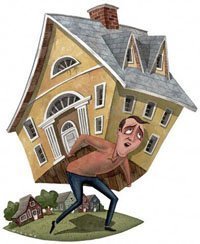Novice investors often delude themselves about the necessary rehab costs estimating repairs when Real Estate Investing. The following story illustrates how investors should approach estimating a rehab project. Legend has it that Tiger Woods was playing golf in a tournament with the late Payne Stewart, another great golfer. They were tied at even par. On one particular hole, they both hit their drives down the fairway and their balls landed about 100 yards from the green. Payne’s ball was just a few inches behind Tiger’s, so he would take the next shot. Payne asked his caddy how far he was from the hole. “One hundred yards,” his caddy replied, handing him a club. Payne hit the ball, which landed ten feet from the hole. Tiger turned to his caddy and asked, “How far?” His caddy replied, “Ninety-seven yards,” and then handed Tiger a club. Tiger hit his ball six inches from the hole. Payne turned to his caddy and angrily demanded, “Why did you give me around number and Tiger’s caddy gave him exact yardage?” Payne’s caddy replied, “Because you’re not as good as Tiger Woods.”
The lesson here is that most investors are not good enough at estimating repairs to guess exact numbers. Instead, it’s best to think in increments of $5,000 or $10,000, always rounding high. For example, an investor who’s talented at estimating repair costs may come up with the figure of $7,200 to rehab a property. A “guestimating” investor may come up with a similar number but should round it up to $10,000 to play it safe.
Ideally, you already have a trusted contractor on your side. Good contractors have the experience and expertise to provide a quick, accurate estimate of needed repairs. Even so, always estimate high on repair costs and cost of materials. Our experience has consistently shown us that two things are inevitable when rehabbing a property:
• It always costs more than you think it will.
• It always takes longer than you think it will.
As with market conditions and property values, be defensive. Estimate conservatively on repairs and you will be pleasantly surprised if it costs less. It’s essential to know how to evaluate a house quickly and accurately because you can’t determine whether you have a good deal unless you know what the property is currently worth. Being defensive means being as dead-on accurate as you can with the real value of a home in its present condition and what it will be worth after repairs or renovations.
